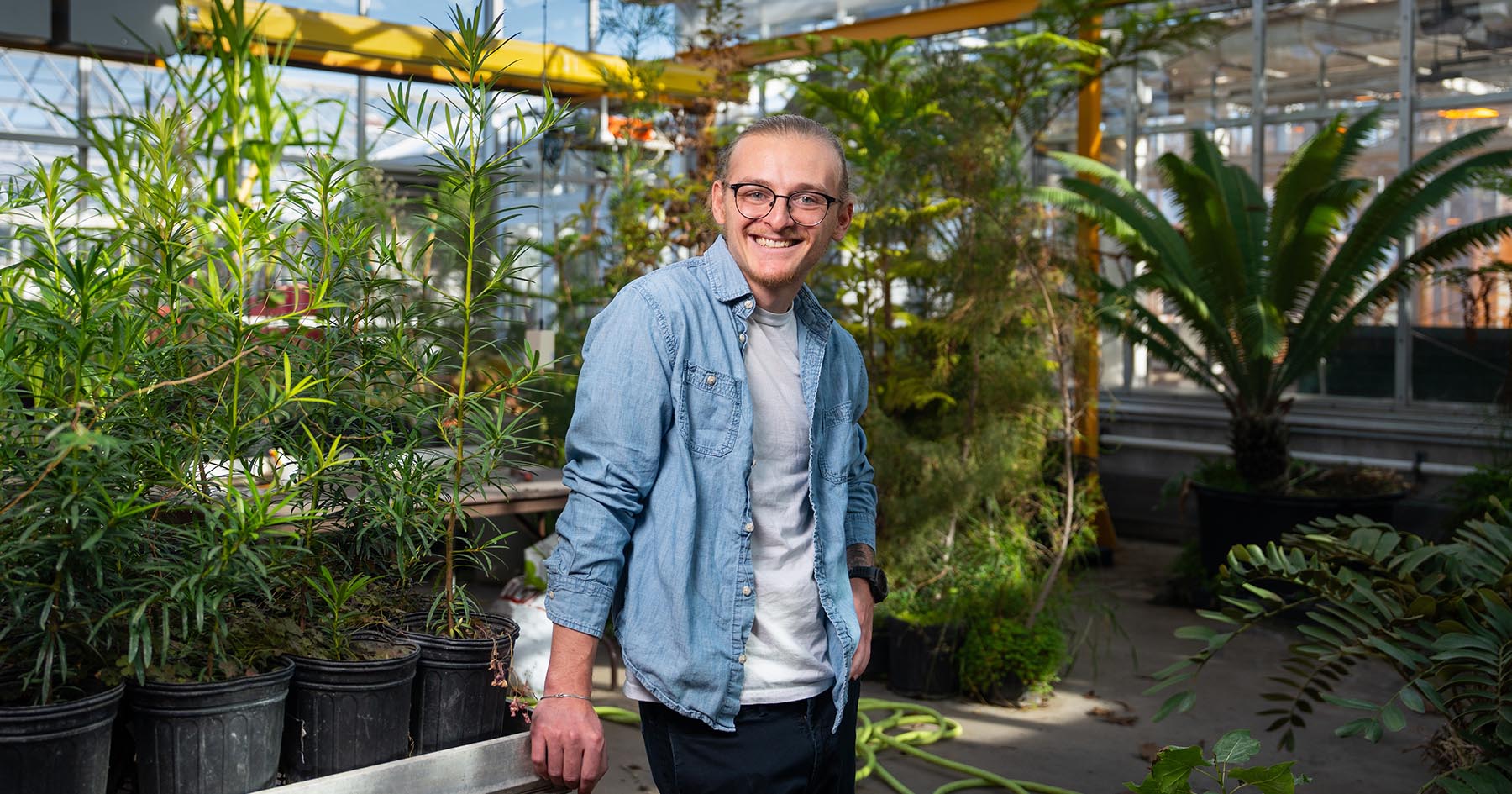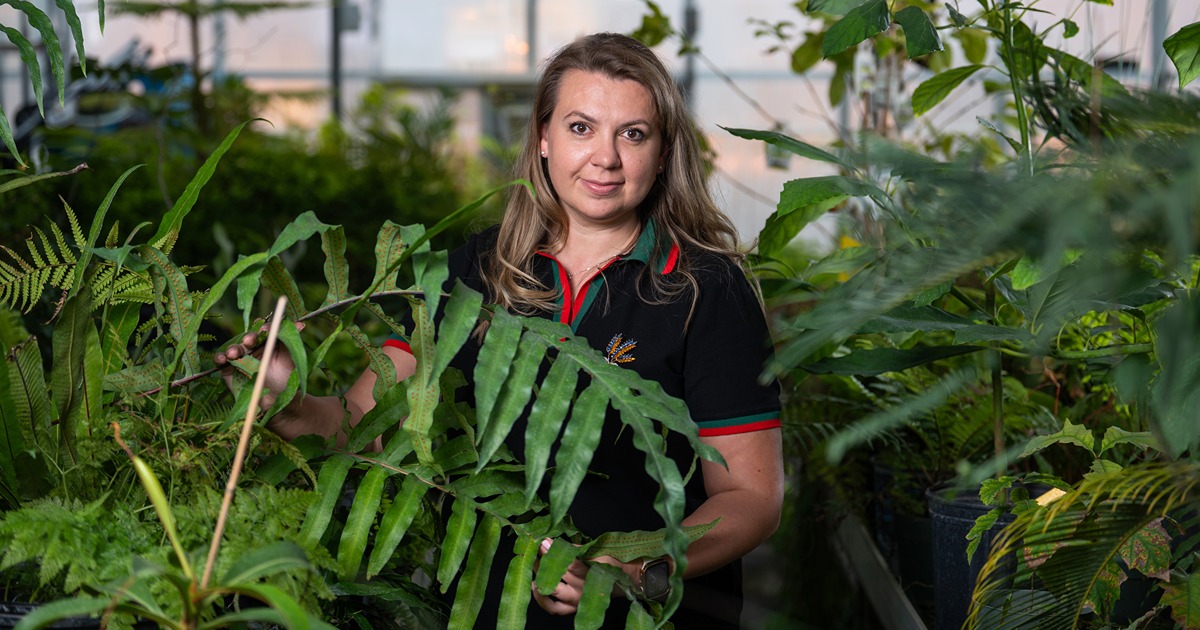Botany & Plant Pathology
Planting seeds of innovation and discovery for plant sciences since 1887.
Join Botany and Plant Pathology at Purdue
CONTACT US
Department of Botany and Plant Pathology
Lilly Hall of Life Sciences, Room 1-446
915 Mitch Daniels Boulevard
West Lafayette, IN 47907
(765) 494-4615
botany@purdue.edu
What is a Botanist?
From the smallest moss to giant sequoia trees, from lichen to mushrooms, from corn to the bacteria and fungi that grow with it — botany goes beyond the study of plants. Botanists are plant scientists, curious about the natural world and how living things grow, interact with each other and change their environment.
Botany and Plant Pathology research protects crucial ecosystems, influences conservation and natural resource management and secures humanity’s food supply with discoveries in genetics, microbiology, plant health, mycology, ecology, anatomy and weed control.
Cutting-edge science, rich in history
Formally established in 1887, Botany and Plant Pathology has a deep-rooted legacy at Purdue. One of the six original professors at Purdue University was botanist Reverend John Hussey, and the first doctoral degree given by Purdue was to Daniel T. MacDougal, a botanist with a thesis titled, “The Curvature of Roots.”
Botany and Plant Pathology is home to 32 faculty members making innovations and discoveries that span plant health, anatomy and physiology, microbiology, environment and ecology, genetics and mycology.
Botany is one of the oldest sciences. People around the world have long studied plants and fungi for food, materials and medicine. Purdue University’s One Health initiative is kickstarting a new age of interdisciplinary research connecting plant science to environmental, human and animal health. Plant science research is more important today than ever before to feed and care for the growing global population and protect the Earth that supports it.
Can I be a botanist?
Are you interested in how plants and fungi grow? Do you wonder about the complex relationships between plants, microbes and their environment? Want to know how cells change to stretch their leaves and stems toward the sun? You may be a botanist in the making — join Botany and Plant Pathology’s plant science major!
Subscribe & Support
Botany and Plant Pathology is a community that includes you. Our Extension agents, farmers and the people they feed are crucial parts of our research. Subscribe to our newsletter, Root of the Matter, to stay updated on our latest discoveries and impacts around the world. Your support and donations help us continue to push the boundaries of plant science and beyond.
Facilities & Communities
Scientists need more than just a lab to flourish. The College of Agriculture and the Botany and
Plant Pathology Department connects faculty, staff and students to a variety of facilities and
communities on campus to help them, their research and their outreach grow.




















